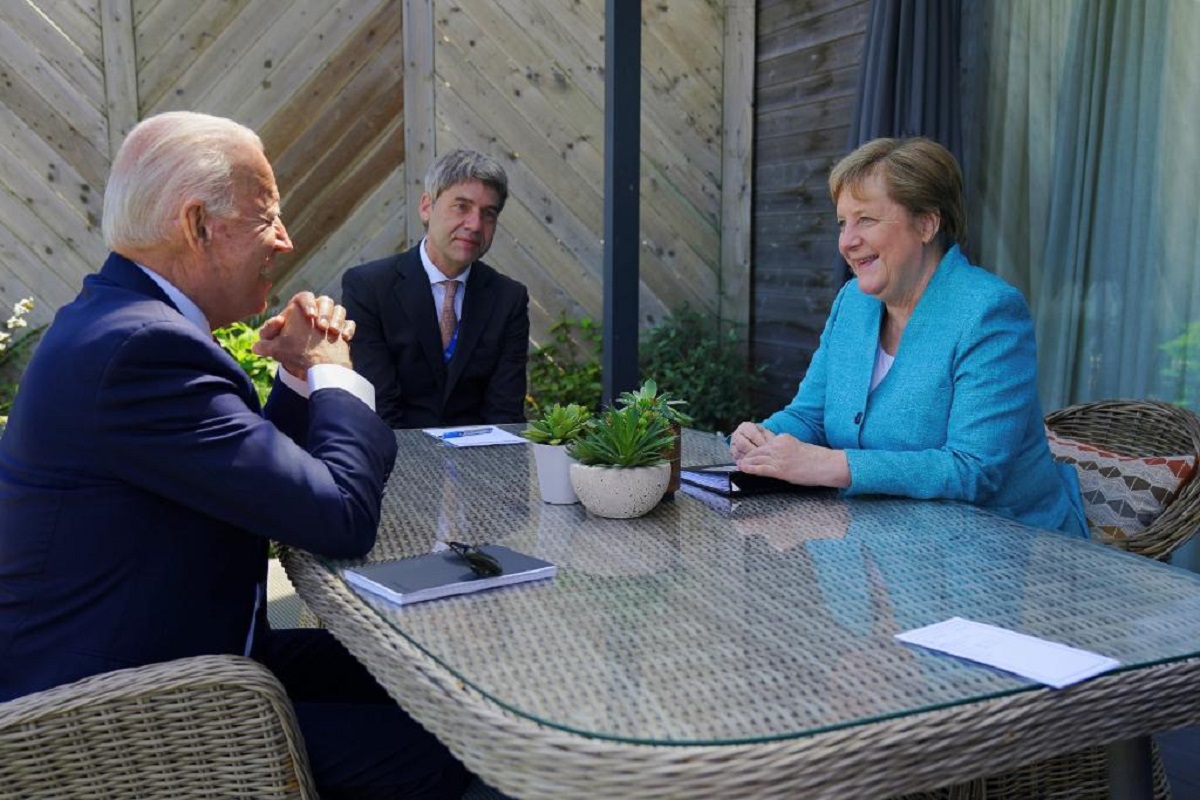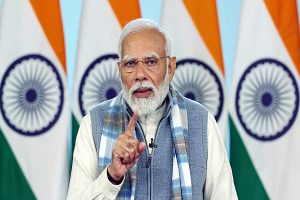Aregional election in Germany would not have been of much moment had it not served as a barometer for the crucial national election in September. Chancellor Angela Merkel’s centre-right bloc claimed momentum on Monday for the September election that will choose Germany’s next leader after a larger-than-expected win in the last regional ballot before the nation votes.
But the victory in a sparsely populated eastern state where it faced a challenge from the far right was mostly a triumph for the popular state Governor. Merkel’s Christian Democratic Union won Sunday’s election in Saxony-Anhalt with 37.1 per cent of the vote, far ahead of the far-right Alternative for Germany, or AfD, with 20.8 per cent.
Yet, the psephological reality is in favour of Merkel not the least because pre-election polls had pointed to a much narrower outcome. Elections in Germany’s 16 states are often influenced by local issues, but are also seen as important indicators of the national mood. The success in Saxony-Anhalt, which has 2.2 million people, gives the CDU leader, Armin Laschet ~ the party’s candidate to succeed four-term Chancellor Merkel in the national vote ~ a reason to celebrate after a jerky start that included two defeats in state votes in March.
“Of course this gives the federal party tailwind,” Laschet said after a meeting of CDU leaders. “It shows that it isn’t moods and polls that decide elections, but voters.” The results were disappointing for the other two parties competing for the Chancellery in the national election on September 26. The centre-left Social Democrats took 8.4 per cent of the vote, dropping into single digits for the first time in Saxony-Anhalt.
The environmentalist Greens scored 5.9 per cent, making only minimal gains despite their impressive performance in the previous elections to the Bundestag. Both mentioned the role played by Saxony-Anhalt’s popular Governor, Reiner Haseloff, who appeared to have won over centrist voters worried about a possible AfD win.
Laschet acknowledged that Haseloff “and no one else” won the election. The subtext of the outcome must be the boost for Merkel’s party and its success in countering Germany’s far-right. Haseloff and Laschet have both insisted that there can be no coalition or cooperation with the far-right party, which has in recent years exploited the anger over Merkel’s welcome for a large number of migrants in 2015; more recently, it has championed its opposition to coronavirus restrictions.
It’s the last test of German public opinion before September’s national election, and of the popularity of the far right. The AfD frontrunner, Oliver Kirchner, has expressed the hope that Sunday’s result will be what he calls “trend-setting” for the national election. Merkel, who has been in power since 2005, is stepping down after the federal election. Senior CDU officials concede that it will be tough to retain their party’s appeal to voters after she takes the bow.












